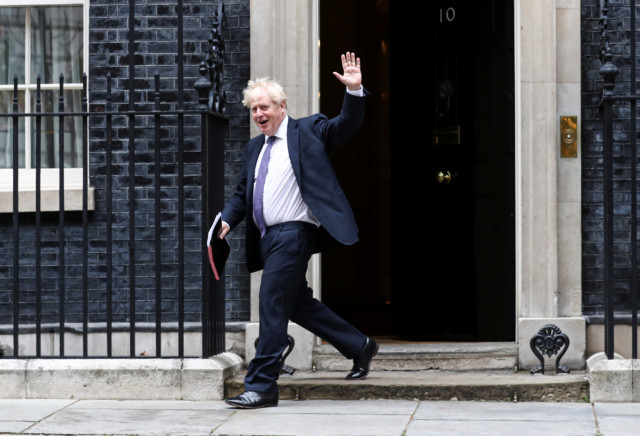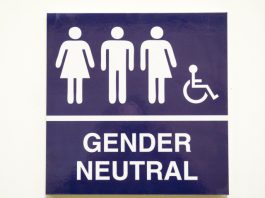THE number of people allowed to gather indoors in England is set to be slashed after a spike in coronavirus infections.
Ministers are meeting today to sign off on the first new national rules in months, after two days of huge spikes in the nation’s infection numbers.
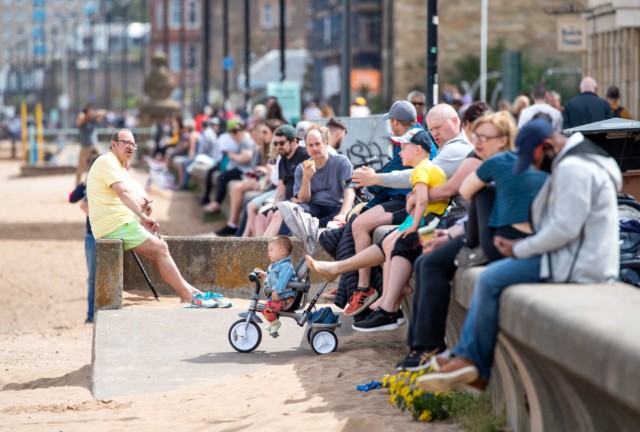
An announcement is expected to be made tomorrow but no firm decisions have yet been made, it’s understood.
Sources said there would be a “toughening up” of the rules to stop the spread as scientists feared it was already spreading across the country.
The current rules mean no more than 30 people can meet inside, but it could be cut down to as low as six.
The news would mean weddings – which were allowed again from the middle of August – might be off yet again.
The final decisions are still being made and Boris Johnson is holding Cabinet this morning.
Matt Hancock is due to make a statement to MPs this lunchtime.
There were 2,988 new cases reported on Sunday, up from 1,813 on Saturday.
And 2,948 cases were recorded on Monday too, leading scientists to believe a second spike is underway.
It came as:
- Housing Secretary Robert Jenrick warned that no one wants another national lockdown to happen
- Jonathan Van Tam warned that Brits have “relaxed too much” which has caused the current spike
- And he pointed out that party-loving youngsters must remember they are “potent spreaders” infecting the elderly.
- Young people are said to behind the latest outbreaks, as more teens see friends and have parties
- Caerphilly in south Wales prepared to be placed under local lockdown from 6pm tonight
Mr Jenrick told Sky News this morning: “There is a concerning rise in cases and it reminds us that we have to keep following the guidance.
“Although we are encouraged to return to the workplace to support jobs, cafes and so on, we need to do so responsibly.
“As we approach the autumn and winter there is going to be even more responsibility on all of us to keep following the guidelines.
“Nobody wants to see a return to full national restrictions of the kind we had earlier this year.”
But there hasn’t been a similar rise in the number of people going into hospital and dying of the virus.
This is thought to be because young people are able to shake off the virus more easily and are less likely to become seriously ill.
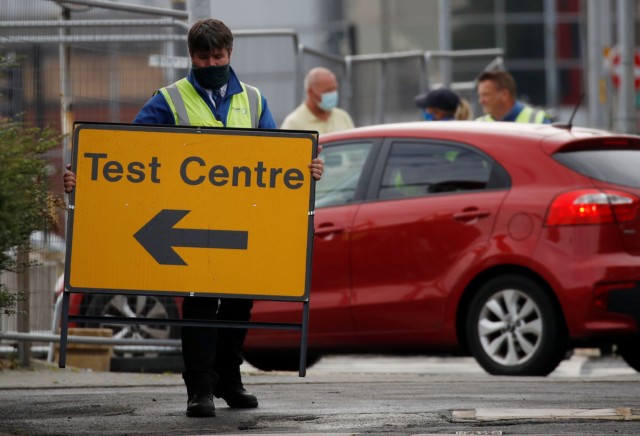
Police have been forced to shut down house parties and illegal raves as some continue to flaunt coronavirus restrictions.
John Edmunds, a member of the government’s Scientific Advisory Group for Emergencies, told ITV’s Robert Peston last night that the next few months could be crucial.
He even hinted that Christmas could be at risk, saying: “The epidemic continues to increase and then we have Christmas.
“And that is very difficult. What is Christmas? Well it’s meeting with your family very close. Restaurants and pubs and stuff like that.
“It’s all high risk. And it’s all indoors.”
He said the R rate was now above one and the UK was in a “risky period”.
He said: “We can see the epidemic is taking off again. So I don’t think we’ve hit that sweet spot where we’ve been able to control the epidemic and allow the economy to return to some sort of normality.”
David Nabarro, the World Health Organisation’s special envoy for the global COVID-19 response also warned today that a second wave of coronavirus “is coming” for the UK.
He told Sky News: “I’m afraid it’s coming.”
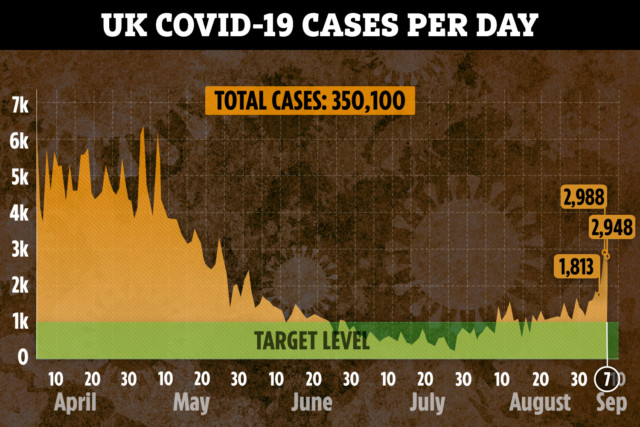
Meanwhile, Caerphilly in south Wales will be placed in a local lockdown from tonight.
Asked if that meant the local lockdown would remain in the area until October, Mr Gething replied: “Yes, at the very least – I can’t overstate the seriousness of the position that we’re in.”
He added: “The evidence and advice that I’ve had from our scientific and medical advisers is that we’re unlikely to see a significant change until two to three weeks, to see the impact these measures are having.”

